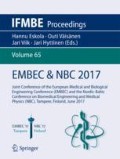Abstract
We designed and conducted an experiment using a repetitive task to investigate associations between mental workload, performance, and Heart Rate Variability (HRV) features across repetitions. According to the literature, we define mental workload as the interaction between a person and a task that causes task demands to exceed the person’s capacity to deliver. Mental workload was triggered by the use of a highly-paced video game repeated over time. Before engaging with the task, each subject was assessed in controlled condition (i.e., relaxing period) for a short time. Short term HRV features variations between the baseline (i.e., control situation) and each repetitive gaming session (i.e., mental task) were explored. The results show that HRV dynamics diminish with repetitions, while performance increases. Importantly, this suggests that HRV features can be well correlated with performance. Overall, this study advances the use of HRV analysis in the behavioral sciences at large, allowing the design of flexible neurophysiological lab-based experiments. Thus, it also opens the way to future autonomic behavioral neuroscience research.
Preview
Unable to display preview. Download preview PDF.
References
[1] S. Massaro and L. Pecchia, “Heart Rate Variability (HRV) Analysis A Methodology for Organizational Neuroscience,” Organizational Research Methods, p. 1094428116681072, 2016.
[2] G. N. Yannakakis, H. P. Martinez, and M. Garbarino, “Psychophysiology in games,” in Emotion in Games, ed: Springer, 2016, pp. 119-137.
[3] J. M. Kivikangas, G. Chanel, B. Cowley, I. Ekman, M. Salminen, S. Järvelä, et al., “A review of the use of psychophysiological methods in game research,” journal of gaming & virtual worlds, vol. 3, pp. 181-199, 2011.
[4] R. Castaldo, P. Melillo, U. Bracale, M. Caserta, M. Triassi, and L. Pecchia, “Acute mental stress assessment via short term HRV analysis in healthy adults: A systematic review with meta-analysis,” Biomedical Signal Processing and Control, vol. 18, pp. 370-377, 2015.
[5] P. S. Tsang and M. A. Vidulich, “Mental workload and situation awareness,” Handbook of Human Factors and Ergonomics, Third Edition, pp. 243-268, 2006.
[6] S. Hébert, R. Béland, O. Dionne-Fournelle, M. Crête, and S. J. Lupien, “Physiological stress response to video-game playing: the contribution of built-in music,” Life sciences, vol. 76, pp. 2371-2380, 2005.
[7] R. A. Henning, W. Boucsein, and M. C. Gil, “Social–physiological compliance as a determinant of team performance,” International Journal of Psychophysiology, vol. 40, pp. 221-232, 2001.
[8] R. A. Henning and S. L. Sauter, “Work-physiological synchronization as a determinant of performance in repetitive computer work,” Biological psychology, vol. 42, pp. 269-286, 1996.
[9] P. Lehrer, M. Karavidas, S.-E. Lu, E. Vaschillo, B. Vaschillo, and A. Cheng, “Cardiac data increase association between self-report and both expert ratings of task load and task performance in flight simulator tasks: An exploratory study,” International Journal of Psychophysiology, vol. 76, pp. 80-87, 2010.
[10] S. H. Fairclough, L. Venables, and A. Tattersall, “The influence of task demand and learning on the psychophysiological response,” International Journal of Psychophysiology, vol. 56, pp. 171-184, 2005.
[11] A. L. Goldberger, L. A. Amaral, L. Glass, J. M. Hausdorff, P. C. Ivanov, R. G. Mark, et al., “Physiobank, physiotoolkit, and physionet components of a new research resource for complex physiologic signals,” Circulation, vol. 101, pp. e215-e220, 2000.
[12] M. P. Tarvainen and J.-P. Niskanen, “Kubios HRV User’s Guide,” Biosignal Analysis and Medical Imaging Group (BSAMIG), Department of Physics University of Kuopio, 2013.
[13] T. Force, “Heart rate variability guidelines: Standards of measurement, physiological interpretation, and clinical use,” European Heart Journal, vol. 17, pp. 354-381, 1996.
[14] P. Melillo, M. Bracale, and L. Pecchia, “Nonlinear Heart Rate Variability features for real-life stress detection. Case study: students under stress due to university examination,” BioMedical Engineering OnLine, vol. 10, pp. 1-13, 2011/11/07 2011.
[15] B. Cinaz, R. La Marca, B. Arnrich, and G. Tröster, “Monitoring of mental workload levels,” in Proceedings of IADIS eHealth conference, 2010, pp. 189-193.
[16] B. Cinaz, B. Arnrich, R. La Marca, and G. Tröster, “Monitoring of mental workload levels during an everyday life office-work scenario,” Personal and ubiquitous computing, vol. 17, pp. 229-239, 2013.
[17] J. Paxion, E. Galy, and C. Berthelon, “Mental workload and driving,” Frontiers in psychology, vol. 5, 2014.
[18] F. E. Ritter and L. J. Schooler, “The learning curve,” International encyclopedia of the social and behavioral sciences, vol. 13, pp. 8602-8605, 2001.
Author information
Authors and Affiliations
Editor information
Editors and Affiliations
Rights and permissions
Copyright information
© 2018 Springer Nature Singapore Pte Ltd.
About this paper
Cite this paper
Castaldo, R., Montesinos, L., Wan, T.S., Serban, A., Massaro, S., Pecchia, L. (2018). Heart Rate Variability Analysis and Performance during a Repeated Mental Workload Task. In: Eskola, H., Väisänen, O., Viik, J., Hyttinen, J. (eds) EMBEC & NBC 2017. EMBEC NBC 2017 2017. IFMBE Proceedings, vol 65. Springer, Singapore. https://doi.org/10.1007/978-981-10-5122-7_18
Download citation
DOI: https://doi.org/10.1007/978-981-10-5122-7_18
Published:
Publisher Name: Springer, Singapore
Print ISBN: 978-981-10-5121-0
Online ISBN: 978-981-10-5122-7
eBook Packages: EngineeringEngineering (R0)

